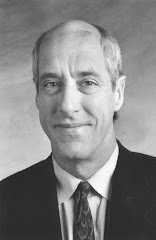DECEMBER 30, 2008 POLITICS / JOHN MAGINNIS
Unlike the year past, the year ahead will be short on elections but long on government, as state leaders try to get their arms and minds around a worsened financial picture, a revamp of public healthcare, the implementation of a new ethics regime and a potentially rockier relationship between the governor and the Legislature. And there still will be election politics, if not actual voting then key decisions to be made for some big 2010 races that will start before this year ends.
Driving these policies and politics will be the major figures--the governor, U.S. senators and legislative leaders--but also emerging players vying to make their marks. Here's the morning line on political newsmakers for 2009.
Charlie Melancon. In a House delegation very short on seniority, Congressman Melancon, the lone Democrat, stands as a relative giant. Though in only his third term, he has become a leader within the increasingly influential Blue Dog Caucus of conservative Democrats. He will be Sen. Mary Landrieu's counterpart in working with the Obama administration and congressional leadership on legislation, especially appropriations, vital to Louisiana. By year's end, however, he must decide if he will risk all that and answer the call of national party leaders to challenge Sen. David Vitter in 2010.
Jay Dardenne. The secretary of state gets a break from the demanding and shifting election calendar of the past two years, allowing him to ponder his own next electoral move. He too must decide this year if he will challenge Vitter in 2010, though doing so could cause a deep rift within the Republican party.
Angele Davis. The governor faces a major budget-balancing challenge, which he already has delegated to his commissioner of administration to solve. She will have to make do with less money after three straight years of legislators and bureaucrats having more and more to spend. Her challenge will be to reduce spending without so cutting services that her boss feels the heat.
Alan Levine. The success of Gov. Bobby Jindal's proposed healthcare overhaul depends heavily on how well the head of the Department Health and Hospitals sells to wary legislators the managed-care plan that he devised in his earlier job in Florida.
Mitch Landrieu. The once rising star finds himself in a mid-career position that could stretch on and on. The lieutenant governor must decide by December if he will qualify to run again for mayor of New Orleans in February 2010. He leads all the polls now, but so did he four years ago before losing to Mayor Ray Nagin.
John Alario. The freshman senator kept a low profile in his first year in the upper chamber, but the longest-serving legislator is expected to play a greater role in the coming debates over the budget and healthcare. He might also position himself to broker a new relationship between Senate veterans and the governor, mending last year's frayed feelings over Jindal's vetoes of legislators' pay raises and local projects.
Charles Boustany. Though less outspoken than the two other doctors in the congressional delegation, the Lafayette representative in his third term could develop the role as a GOP counterpoint to Democratic plans to expand government-sponsored healthcare. He also takes a seat on the tax-writing Ways & Means Committee, with an eye toward quietly building seniority and leadership in the mode of retiring Congressman Jim McCrery, who rose to prominence on the same panel.
Karen Carter Peterson. Her future seemed limited after losing the 2006 congressional election to Bill Jefferson, but the New Orleans Democrat rebounded to be chosen speaker pro tem in the state House. Then she was the first state politician to sign on to Barack Obama's nascent presidential campaign. If she doesn't take a high post in the new federal administration, she is seen as a viable contender for mayor or, again, Congress.
Frank Simoneaux. The governor is counting on the new chairman of the state Board of Ethics to make workable a new set of ethics laws that, critics charge, has weakened the board's power to prosecute alleged transgressors. If he can't, the attorney and former lawmaker must shepherd changes through a Legislature which is having second thoughts about what it wrought in the name of good government.
Friday, January 9, 2009
Subscribe to:
Post Comments (Atom)

No comments:
Post a Comment